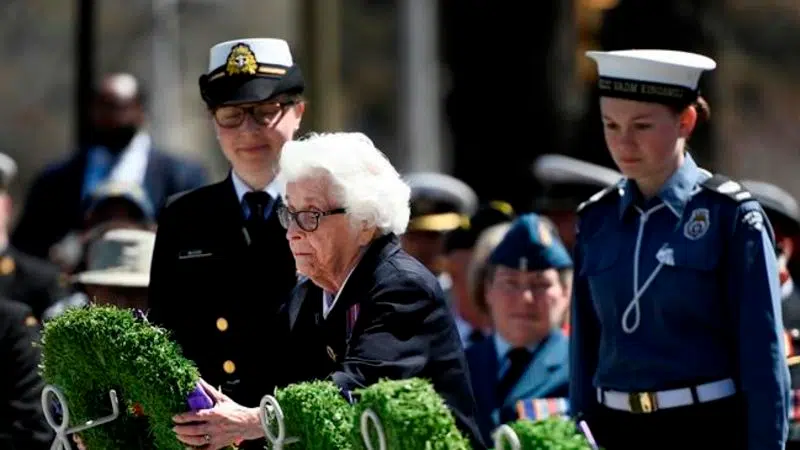
Canadians remember Second World War’s long, dark Battle of the Atlantic
OTTAWA — Canadians across the country marked one of the longest, darkest and most pivotal chapters of this country’s involvement in the Second World War on Sunday: The Battle of the Atlantic.
Lasting the whole of the war in Europe from September 1939 to May 1945, the battle saw Canada and its allies fighting Nazi submarines, planes and ships for control of the North Atlantic seaways.
More than 4,600 Canadians would lose their lives, including sailors, merchant mariners and aircrew trying to protect vital convoys as they crossed the cold and choppy waves carrying supplies to England and Europe.


